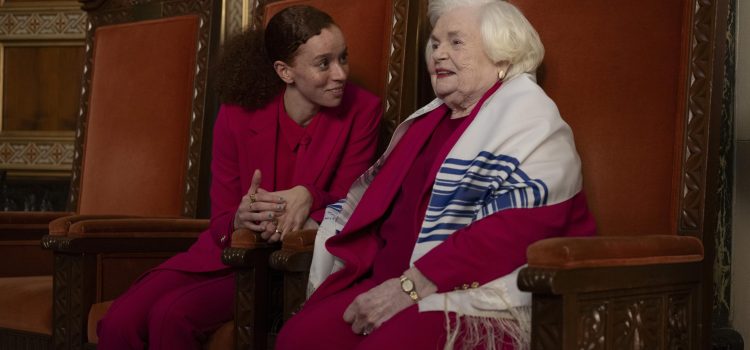By Alex McPherson
Even a top form June Squibb can’t quite save director Scarlett Johansson’s “Eleanor the Great,” a dramedy that can’t reconcile its disparate tones.
Johannson’s directorial debut stars the 94-year-old Squibb as Eleanor Morgenstein, a snarky Jewish widow sharing an apartment in a Florida retirement complex with her best friend, Bessie (Rita Zohar). The two are happy together, with Eleanor finding particular enjoyment in nagging the neighborhood “youths” with her bubbly-faced, acerbic wit.
In quieter moments, though, Bessie battles inner demons and trauma. Bessie, also a widow, is haunted by her experience during the Holocaust, sometimes sharing harrowing stories of death and survival with Eleanor that she has never told anyone else. This delayed “catharsis” clearly eats away at her.
When Bessie dies unexpectedly, Eleanor is, understandably, deeply shaken. She moves back in with her divorced, perpetually stressed daughter Lisa (Jessica Hecht) and grandson Max (Will Price) in their small New York apartment.
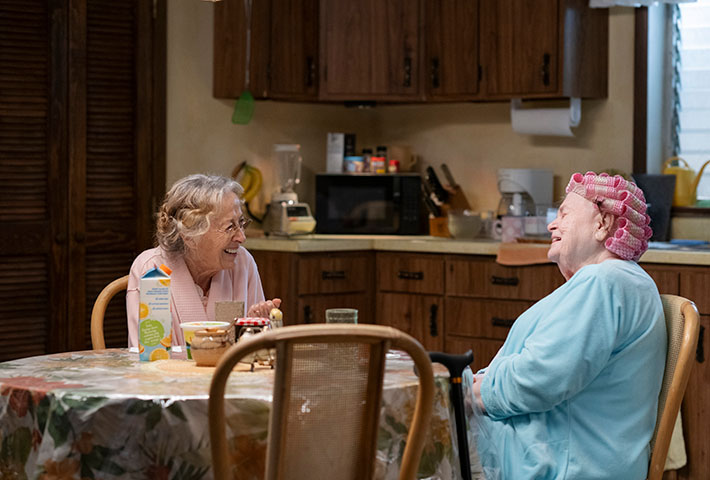
Besides mercilessly judging Lisa from the get-go, Eleanor’s loneliness rapidly creeps in, and she feels adrift without Bessie by her side. Lisa signs Eleanor up for a senior’s social group at the local Jewish community center, hoping to get her out of the apartment and help her make new connections.
Things get wonky when Eleanor accidentally wanders into a support group for Holocaust survivors and, impulsively, decides to claim Bessie’s experiences as her own. Eleanor gets the attention of NYU journalism student Nina (Erin Kellyman), who sits in on the support group hoping to write a story for class and connect with her own Jewish roots. She quickly decides that Eleanor would be the perfect person to center for her article.
Nina is also grieving her mother who recently passed away. She’s currently living in an apartment with her news reporter father, Roger (a typically excellent Chiwetel Ejiofor), who has grown increasingly distant since the loss.
Despite some initial reluctance, Eleanor sparks up a friendship with Nina, and the two grow close. Eleanor’s lie gives Nina the chance to grapple with her own grief, and find solidarity with a pseudo-parental figure.
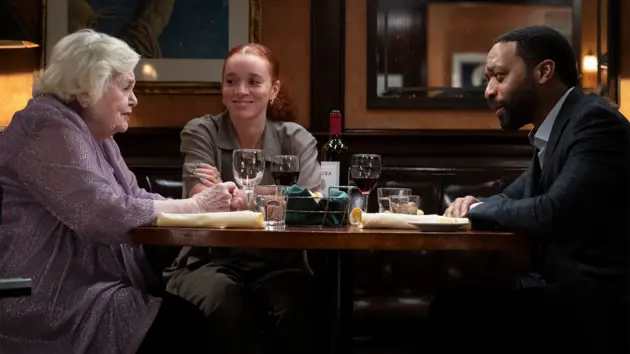
But as Eleanor continues this falsehood of being a Holocaust survivor, it’s only a matter of time until the truth is revealed. Eleanor’s connections and newfound sense of belonging are in serious jeopardy.
But not all that much jeopardy. As it turns out, Johansson’s film is content to bring up thorny topics of truth, love, aging, and trauma without fully exploring them, awkwardly positioning its “‘Dear Evan Hansen’ for the Holocaust” thread alongside a lighthearted story of intergenerational friendship.
The former almost seems too much for Johansson and screenwriter Tory Kamen to handle; they refuse to reckon with the darker implications of Eleanor’s lie and the effects it has on those who believe her. “Eleanor the Great” ultimately eschews true introspection for a schmaltzy resolution that sands down ambiguity for the sake of convenience. Still, there’s enough impactful performances and wry humor to hold mild interest.
Squibb, coming off the heels of last year’s sleeper hit “Thelma,” carries most of Johansson’s film, punchily delivering Eleanor’s barbed insults and judgy asides in another strong late-career performance. She also embodies how Eleanor’s lie gradually eats away at her and her gradual recognition of how it represents her own grief.
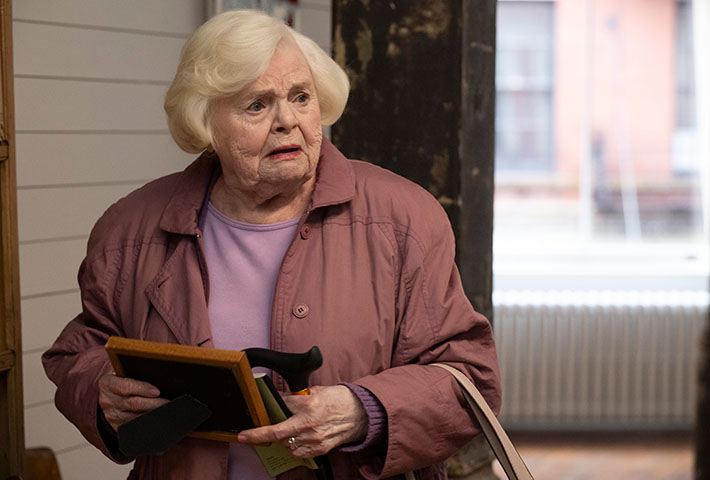
Squibb’s commanding, confident screen presence, “innocence” belying impulsion and cynicism, anchors even the most over-explanatory dialogue from Kamen’s screenplay — if only “Eleanor the Great” had trusted Squibb further to convey Eleanor’s inner concerns in a more subtle fashion rather than having both Eleanor and other characters bluntly spell them out for us.
Kellyman holds her own alongside Squibb, bringing fresh-faced energy and deep wells of grief, with Johansson’s unobtrusive, albeit bland direction and Kamen’s gentle screenplay believably selling the characters’ friendship.
It’s in these moments — where Eleanor imparts worldly wisdom to Nina, and the two of them explore New York City together — where “Eleanor the Great” shines as the uplifting film it could have been without the baggage of its darker elements.
It’s not that Johansson and Kamen shouldn’t be commended for attempting to explore such a weighty topic as the Holocaust, but “Eleanor the Great” too often remains stuck in an inter-genre limbo that never figures out what it wants to be.
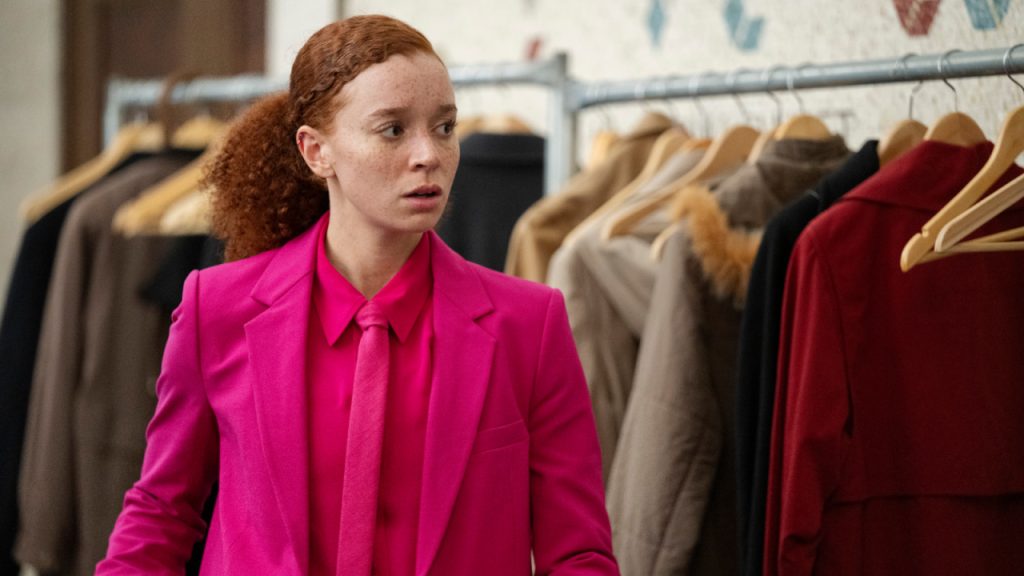
Yes, it’s admirable that Johansson cast real-life survivors of the Holocaust for Bessie and the support group. Yes, scenes where Zohar recounts Bessie’s history (through flashback) are raw and gripping, particularly in the film’s final stretch.
But “Eleanor the Great” lets Eleanor herself off the hook too easily, particularly in its predictable generalizations about grief’s many different forms, leaving the more ambiguous consequences of Eleanor’s decisions to viewers’ imaginations.
The tonal whiplash is striking, prompting off-kilter vibes that “Eleanor the Great” can’t shake. Squibb and Kellyman make a dynamic pair, though, and the film’s rickety yet ultimately familiar shape makes it a passable enough, not “great,” time at the movies.
“Eleanor the Great” is a 2025 drama film directed by Scarlett Johansson and starring June Squibb, Erin Kellyman, Rita Zohar, and Chiwetel Ejiofor. It is 1 hour, 38 minutes, and rated PG-13 for thematic elements, some language, and suggestive references. It opens in theatres Sept. 26. Alex’s grade: B-.

Alex McPherson is an unabashed pop culture nerd and a member of the St. Louis Film Critics Association.

